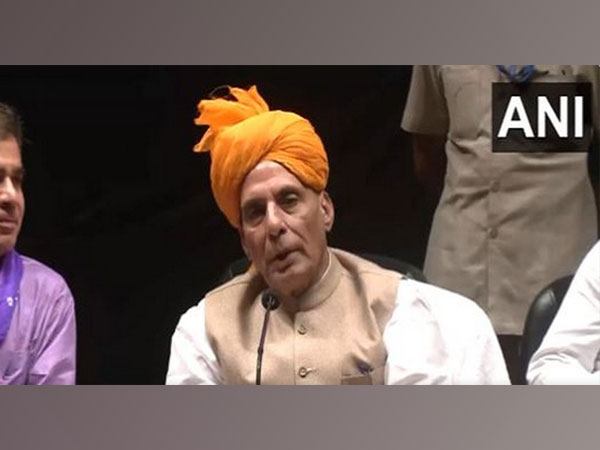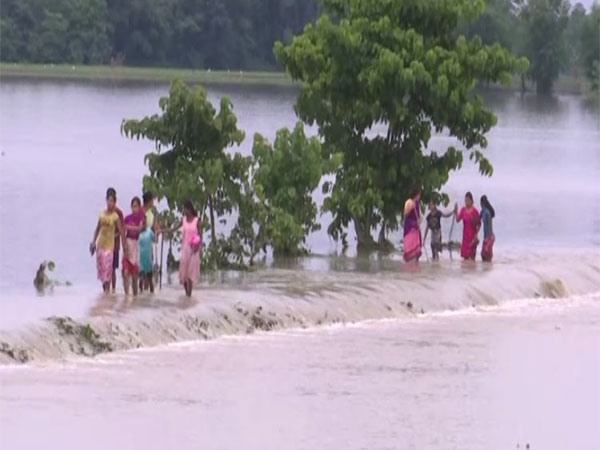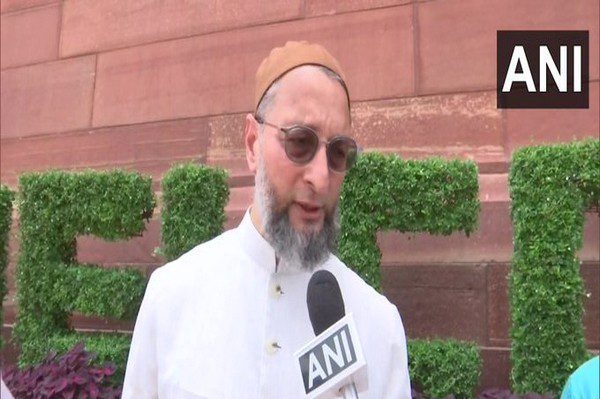India worrying about the its democracy
Last week after watching the Indian Prime Minister Narendra Modi’s address to the US Congress for a rare second time, an Indian friend based in the US could not stop gushing about how clever and good the speech was. And how impressed the US senators and representatives were by what he said. I caught a video recording of Modi’s speech and was suitably impressed too. His speech, in English, was holistic—it described India’s achievements; it highlighted his government’s achievements by underscoring the massive numbers of people that have benefited from various policies and schemes—numbers, which, in a country with a population of 1.4 billion, can in some instances rival the entire population of South America, North America, or Europe.
Modi received standing ovations on multiple occasions, particularly when he spoke about the strong ties between India and the US, the world’s largest and oldest democracies, respectively. But away from the arc lights in the House; or in Modi’s meetings with President Joe Biden; or the interactions he has had with the euphoric diaspora of Indians, including top executives such as the CEOs of Google and Microsoft, India’s democracy has come under scrutiny.
On this state visit of his, there have been protests about what is seen as India’s backsliding on democratic values, on the treatment of minority communities, and on freedom of speech and the media. Many Congressmen, particularly those subscribing to liberal mores, stayed away from Modi’s address to the House. Both Modi and Biden, however, skirted questions at a press interaction (according to media reports, it was limited to two questions!) where Modi declared that there was not discrimination in India.
Both India and the US need each other and in the context of the new world order that is emerging with the role of China and its alignment with Russia those needs are fast approaching a degree of urgency. It is not hard to see why the US administration would prefer to gloss over the democracy and discrimination issues in its dialogue with India. Yet India cannot ignore the simmering concern about how the current regime is perceived by the world—a not-so-pretty picture that is portrayed persistently in the Western media.
Stories and reports, usually in the foreign media, have consistently described growing insecurity among India’s minority communities, including Muslims; and an increasing atmosphere of religious and communal intolerance. India has slipped in successive surveys such as the Global Democracy Index, prepared by the Economist Intelligence Unit, on which it is classified as a flawed democracy, and its ranking on the indices of press freedom have slid to abysmally low levels.
The fact is that even as there is limited public outcry on these issues within India (remember, the Indian media have limited freedom), the Indian government is concerned by these. According to UK’s Guardian newspaper, the Indian government has been holding confidential meetings of its key ministries to address these worrying issues. According to the Guardian report, the newspaper has seen minutes of at least four meetings of Indian officials that have focused on how to raise India’s rankings on various indices that measure democratic values and rankings as well as other parameters of freedom.
In public, India may brush off observations about the nature of its democracy (India’s foreign minister has remarked that the country is in no need of “sermons”); and its quite subservient media may choose to all but ignore it, but the Modi regime is worried about the consistent reports and views about the state of its democracy. And that could be a good thing for India.
Manipur hurtles towards a civil war
For two months, Manipur, the northeastern Indian state, has been burning. After violence erupted between two of its prominent tribes—the majority Hindu-dominated Meitei and the Christian hill tribe of Kukis, the situation is fast moving towards a civil war-like situation.
Ethnic violence has already led to more than 100 deaths and several hundred injured. As many as 60,000 people have been displaced from their homes and have had to take refuge in 350 camps. Mobs have looted weapons from police armouries and although the government has deployed 40,000 troops—army soldiers, police, and security forces—the violence continues. The Union home minister Amit Shah visited Manipur some time ago and promised that things would be resolved but that has not helped.
The level of mistrust between the warring communities has sharpened, with both accusing security forces of being partisan. More than 200 churches and 17 temples have been destroyed or damaged by mobs. Homes of local ministers and legislators have been attacked and set on fire.
India’s eight north-east states have a population of 45 million spread among more than 400 communities and ethnic groups. Violence and lashes have been a common feature of the regions and despite many peace talks, the schisms between different tribes and communities continue. Manipur borders Myanmar. The state has 33 tribes that are hugely diversified. There are an estimated number of 40 insurgent groups in the state and the Meitei, Naga, and Kukis have been at war with each other for a long time.
Sometimes the conflict is between the ethnic groups. For instance, the trigger for the current conflict is about whether the Meitei should have the status of a scheduled tribe as the Kukis do. At other times the conflicts have been between insurgents and Indian security forces. For the Indian government, resolving the northeastern issues, particularly the ongoing violence in Manipur, should be of high priority before things get even worse.
Can India’s Opposition take on Modi?
Last week, at a conclave initiated by Bihar chief minister Nitish Kumar, 15 Indian opposition parties met to forge out an alliance for next year’s parliamentary elections. The idea, mooted by Kumar, involves burying ideological and political differences and fielding one candidate backed by all the opposition parties to take on the candidate from Modi’s ruling Bharatiya Janata Party (BJP) in each of India’s parliamentary constituencies. Last week’s meeting was preliminary and mostly symbolic. The parties will meet again in July.
But will such a united front work? India’s experience with coialitions and fronts such as the one proposed by Kumar has usually been mixed. In most cases they end in messy breakups, sometimes quite acrimoniously too because of conflicting ambitions of leaders of different parties and squabbles over things such as who gets what ministry and official position.
Also, it will be interesting to see whether the Congress, once India’s most powerful national party but one that is now reduced to a shadow of its former self, will agree to play second or even third fiddle in a united front. The BJP, on its part, is watching the attempts at a united opposition to its regime with interest…. and amusement. The party’s minister and leader, Smriti Irani, thanked the opposition, particularly the Congress, for conceding that it could not take on Modi by itself.
The tragedy of the Titan
The Titan submersible, a crewed submersible operated by OceanGate, an American tourism company, is believed to have imploded while on a dive several hundred meters below the sea level, killing all five crew members. The Titan was the only crewed submersible in the world that could take five people as deep as 4,000 meters (more than 13,100 feet) below the surface of the ocean. The submersible was part of a tourist expedition to observe the wreck of Titanic.
On June 18th, the Titan submersible imploded during its descent in the North Atlantic Ocean, about 400 nautical miles off the coast of Newfoundland, Canada. The submersible was carrying five people and was part of a tourist expedition to observe the wreck of Titanic. Experts say that the Titan submersible suffered a catastrophic implosion that killed its pilot and four passengers instantly amid the intense water pressure in the deep North Atlantic.
The Titan submersible is about 9 feet high, 8 feet wide, 22 feet long and weighs 25,000 pounds. It left from St. John’s, Newfoundland on June 16th and lost contact with the ship that was monitoring it about an hour and 45 minutes later. The five people killed were Five people were killed in the **Titanic submersible** when it imploded. They were: British billionaire and explorer Hamish Harding, 58; Pakistani-born industrialist Shahzada Dawood, 48, and his son, Suleman, 19; French oceanographer and Titanic expert Paul-Henri Nageolet, 77; and the chief executive of OceanGate, Stockton Rush, 61.
Fracas over Adipurush
In India, controversies over films, particularly anything to do with history, Hinduism or mythology, are common. Adipurush, a Ramayana-inspired film starring Prabhas, Kriti Sanon and Saif Ali Khan, has led to another. The teaser of the film, released on October 2, 2022, faced backlash from various groups for the portrayal of Lord Ram, Lakshman and Ravana. The Vishva Hindu Parishad, some BJP members, the chief priest of Ayodhya’s Ram Temple and Madhya Pradesh’s Home Minister raised objections and demanded a ban on the film. They claimed that the film ridiculed Hindu society and mocked Hinduism.
Last Friday, a huge protest was held against Om Raut’s Adipurush by advocates at a Police Station in New Agra. They filed a complaint opposing the movie which has “hurt the religious sentiments of the Hindu society”.
The movie has also stirred controversy over Sita’s birthplace. Kathmandu has banned the screening of all Indian movies after objecting to dialogue in ‘Adipurush, which claims ‘Sita is the daughter of India. According to the mayor of Kathmandu, the goddess was born in Janakpur, located in modern-day Nepal. Another film; another controversy.
Read more: http://13.232.95.176/




